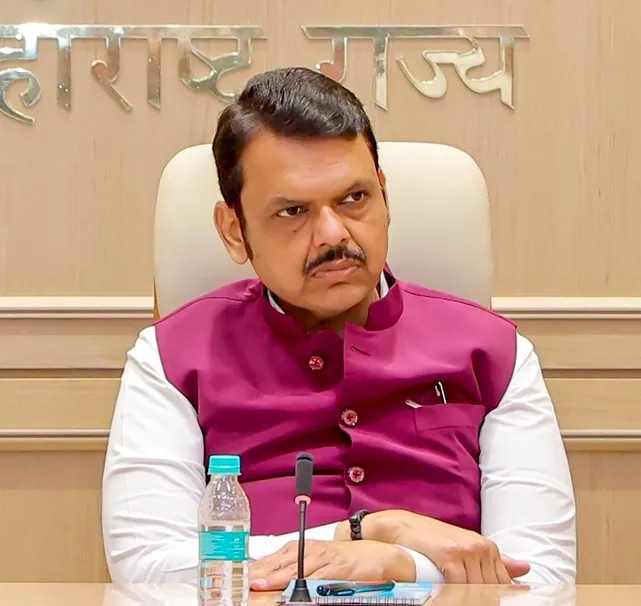Should Banks Avoid CIBIL Scores for Farmers' Loans?

Synopsis
Key Takeaways
- CM Fadnavis urges banks to stop CIBIL score requirements for agricultural loans.
- Importance of supporting farmers to prevent adverse economic consequences.
- Target of Rs 5,000 crore investment annually in agriculture.
- Collaboration between banks and government is crucial for financial inclusion.
- Focus on favorable weather conditions to support agricultural growth.
Mumbai, May 19 (NationPress) - On Monday, Maharashtra Chief Minister Devendra Fadnavis urged banks to offer agricultural loans to farmers without requiring a CIBIL score (a numeric summary of credit history). The CIBIL score, which varies from 300 to 900, indicates creditworthiness—the closer to 900, the better the rating.
Fadnavis stated, “Failure to provide agricultural loans can lead to dire consequences, including farmer suicides and economic downturns. Despite repeated requests from farmers to refrain from demanding CIBIL scores, banks continue to do so. An immediate solution is necessary. The government has previously filed complaints against such banks. This issue must be treated with urgency, as the Reserve Bank of India has clarified the norms regarding agricultural loans. Any bank branch that insists on a CIBIL score will face repercussions,” he emphasized at the 167th meeting of the State Level Bankers Committee.
The Chief Minister also called on nationalized banks to intensify efforts to increase the availability of agricultural loans and meet the targets set for the fiscal year 2025-26.
During the meeting, Maharashtra’s credit plan for 2025-26, valued at Rs 44,76,894 crore, was approved.
Highlighting Maharashtra's leadership in the country, Fadnavis noted that farmers are the state’s backbone and that agriculture is crucial to its economy. Ignoring this sector is unjust. Therefore, nationalized banks must prioritize enhancing agricultural credit.
“With the Meteorological Department forecasting ample rainfall this year, there’s no drought, and crops are expected to thrive. Banks should collaborate closely with farmers. Good rainfall correlates with robust agricultural growth. This is an opportunity for banks to assist farmers. An investment policy is being implemented in agriculture, and banks play a key role here. A target of investing at least Rs 5,000 crore annually in agriculture has been established, opening new avenues for investment. Thus, banks should extend maximum credit to farmers, which will ultimately be beneficial for them,” the Chief Minister remarked.
“Agriculture will transition from a mere auxiliary sector to a business opportunity. Banks need to engage actively. A policy should be designed to reward farmers and those excelling in these initiatives. Fadnavis also instructed that names of underperformers should be noted and addressed in future meetings to inspire improved performance,” he added.
CM Fadnavis highlighted that Maharashtra has surpassed the half-trillion economy threshold and is swiftly progressing toward a one-trillion economy. Banks play a pivotal role in this journey.
Maharashtra leads in foreign direct investment, with direct investments amounting to Rs 16 lakh crore from Davos. The state is now a hub for startups, and banks should focus on this sector, which has the potential to create significant employment opportunities. Maharashtra also ranks first in SSME, presenting excellent investment possibilities. Collaboration between banks and the government is crucial to ensure that central and state scheme benefits reach their intended recipients, thereby bolstering the state and national economy,” he noted, stressing the importance of prioritizing tourism and service sectors as well.
Furthermore, CM Fadnavis mentioned that Maharashtra has a substantial number of FPOs that can greatly contribute to agricultural development. Greater attention should be directed towards Gadchiroli, where an industrial network is being developed. By aligning their priorities with the government, banks can facilitate comprehensive development. It is the banks' duty to implement both central and state government schemes to achieve financial inclusion,” he added.
Deputy Chief Minister Eknath Shinde reiterated the importance of banks addressing agricultural credit provision seriously.
“A full target of credit provision must be achieved. Banks should support entrepreneurs, especially women entrepreneurs. There should also be a focus on boosting credit provision in the Greater Mumbai region, which holds vast development opportunities,” he concluded.










